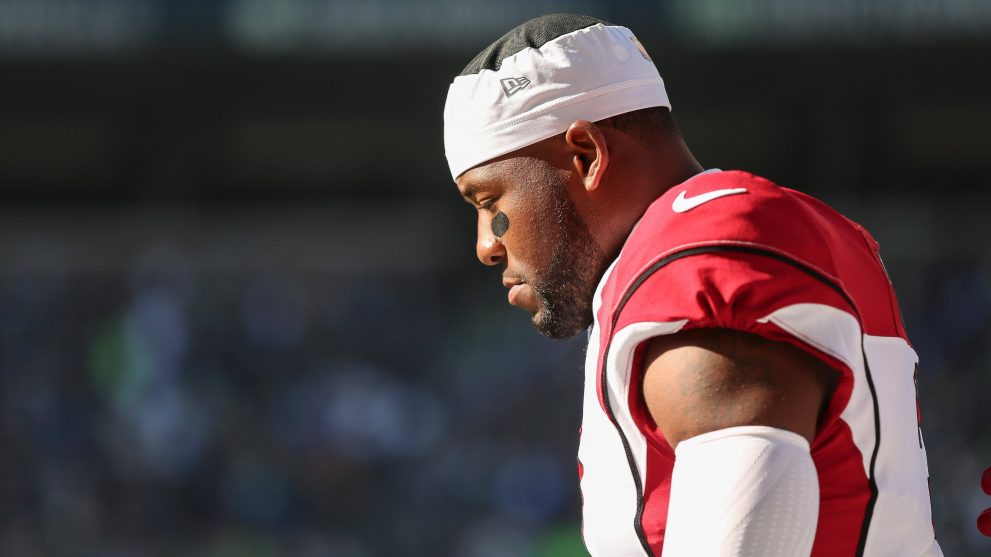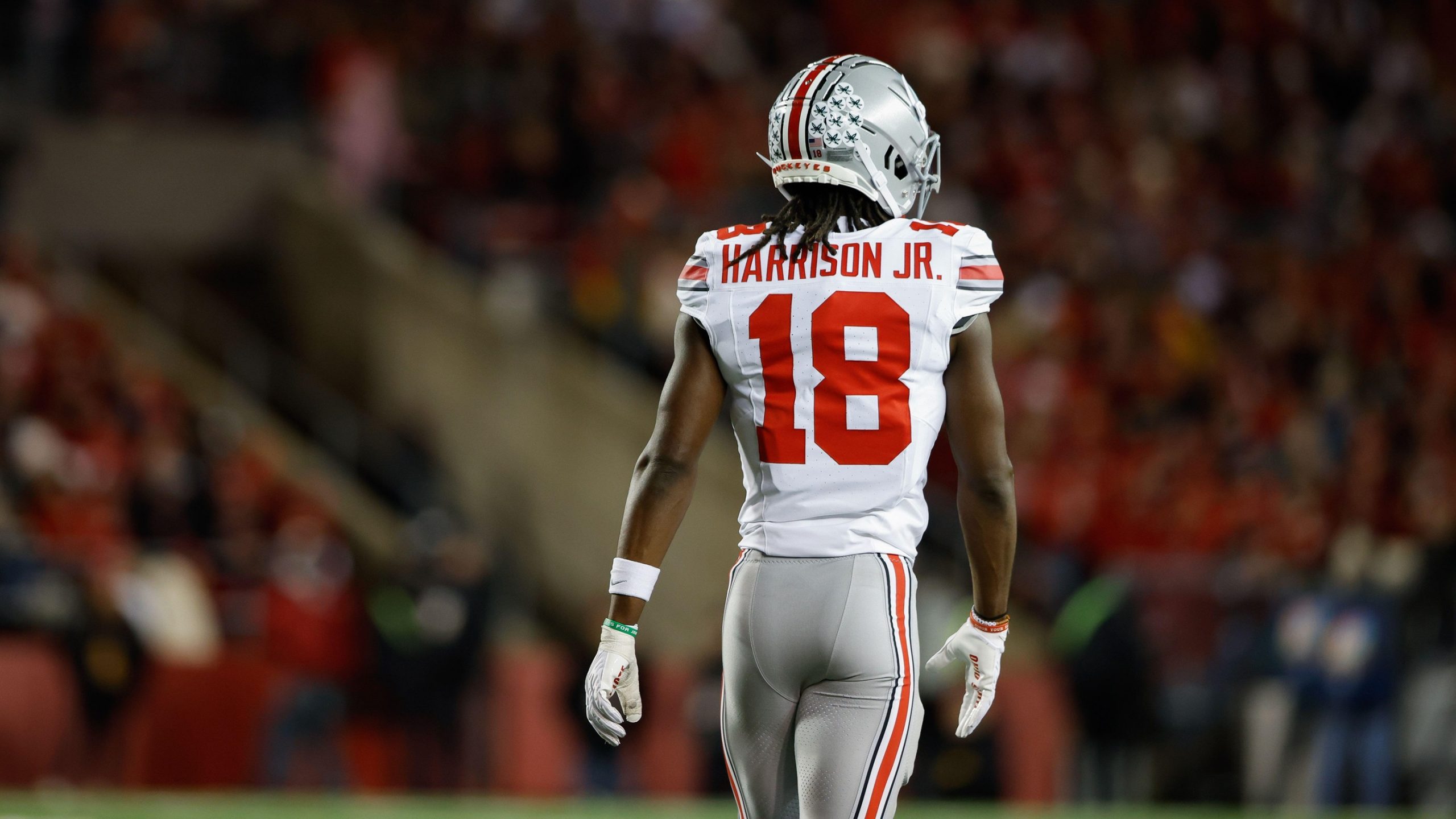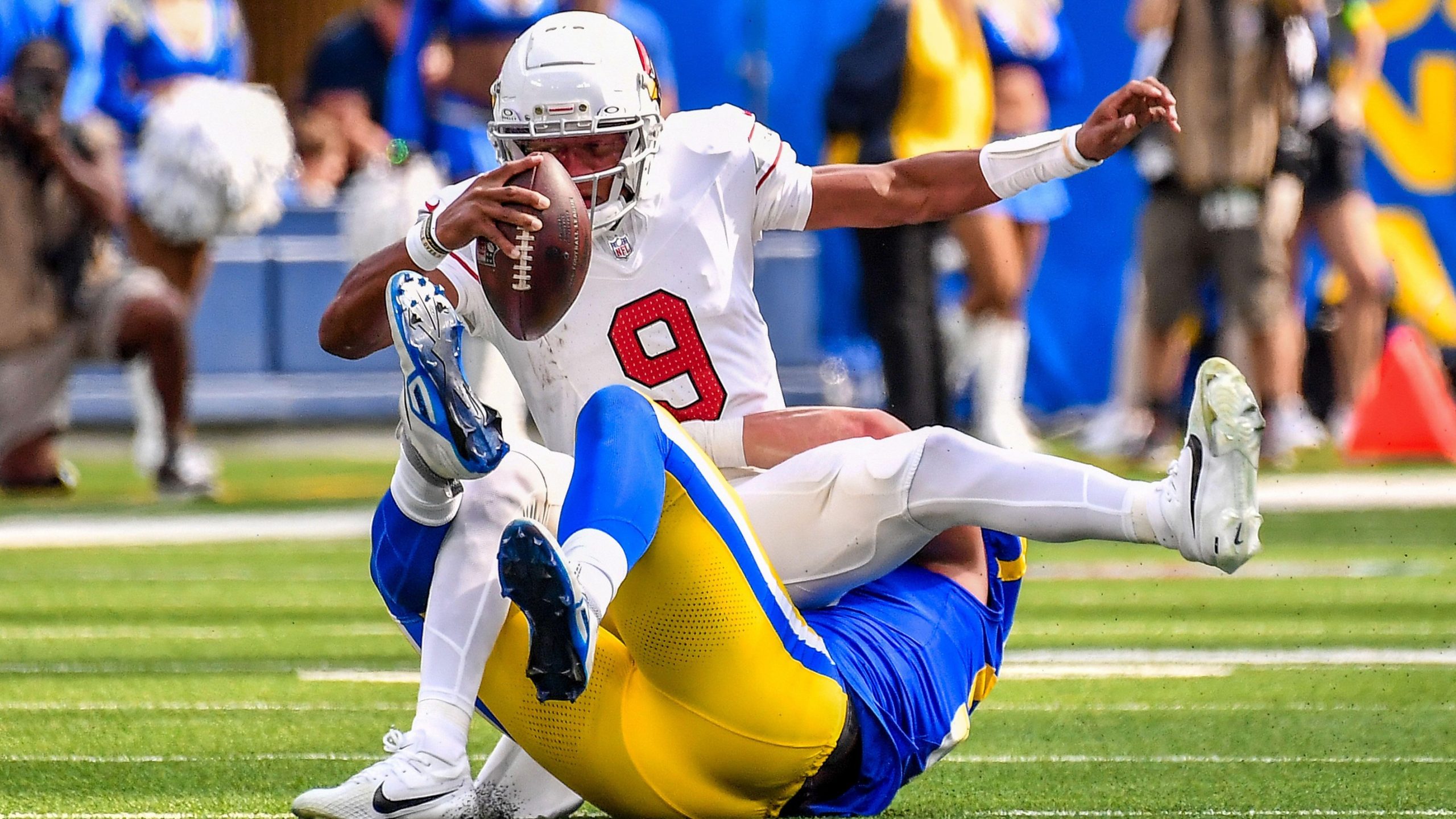I’m going to give you a three-paragraph runway to exit out of this article if trading Budda Baker sounds treasonous.
After all, he is the heart and soul of the Cardinals, a mega-talented player still in his prime, and worth every cent of the contract that ties him to Arizona through the 2024 season.
The easiest decision for General Manager Monti Ossenfort is to cater to his five-time Pro Bowl safety by addressing Baker’s financial needs and/or solving any other issues there may be.
OK, time’s up, because it’s time to address the elephant in the room: the Cardinals may be better off trading the best defensive player on their roster.
The Case For Trading Budda Baker
First and foremost, if Arizona had plans to be remotely competitive in 2023 — if there was the slimmest of hopes to make the Super Bowl — dealing Baker would be a non-starter.
But have you watched the offseason unfold?
J.J. Watt retired. DeAndre Hopkins requested a trade. Zach Allen and Byron Murphy left in free agency and weren’t replaced.
Videos of Kyler Murray’s knee rehab look encouraging, but he’s still likely to miss time and then have his rushing ability limited upon return.
This is a tank year through and through for the Cardinals, who already seem to be positioning themselves to finish with a top-5 pick, at worst, in 2024.
They have 180/1 odds to win a championship at FanDuel, and while betting odds aren’t perfect, they tend to be a realistic guide for expectations.
So while Baker is likely to again play at a Pro Bowl level in 2023, it’s not going to amount to much. And when looking at it through the lens of 2024 and beyond, the Cardinals have to decide whether it’s wise to give top-of-the-market money to a safety who may be heading into the downside portion of his career.
Baker should no doubt be a fantastic player for a number of years, but if the production starts to slip a little, or if the all-out nature of his play-style starts to take a toll on his body, an average annual value of $18-to-$20 million beginning at age-29 could be risky.
Additionally, while Baker is a Swiss Army knife who impacts the game in multiple ways, he doesn’t play a premium position like outside cornerback or edge rusher, which needs to be part of the equation.
It’ll be interesting to see the market for Baker in a potential trade. I’ve advocated in the past for the Cardinals to consider a trade of left tackle D.J. Humphries because he may not line up with the rebuild timeline and could fetch a nice draft pick.
The same would hold true with Baker. Nobody will ever get a Jamal Adams-like haul for a safety again, but a second-round pick for Baker, coupled with the dealing of Hopkins and a potential trade down from No. 3, could set the Cardinals on a promising rebuild path with copious draft capital.
Yes, they would have almost no star power left on the roster outside of Murray — the timing for this new uniform unveiling is, ahem, less than ideal — but if the target for Super Bowl competitiveness is realistically 2025 and beyond, then how much impact will the current veteran stars have anyway?
The Dolphins did this a couple years ago, trading away practically every big name on the roster, and they rebuilt quickly. It can happen in the NFL, and it’s a prudent path.
By trading Baker, the Cardinals would save cap money and be able to roll it over to next season. Murray’s cap hit is going to skyrocket in 2024, but the team will still have some flexibility based on the way Ossenfort is playing his hand.
Additionally, Arizona needs to figure out if Isaiah Simmons is a long-term piece on defense. It’s pretty clear by now he is best-suited for safety, but there’s currently no realistic way to play him there because Baker and Jalen Thompson are the two best players on the Cardinals’ defense.
A trade of Baker would allow Simmons to move to his most natural position, add draft capital and save money.
Baker is undoubtedly a great example to younger teammates and everything you want in an NFL player. But does it really matter that much for a team that may be lucky to win six games in 2023?
There is no worse place to be than NFL purgatory, where you are not good enough to make a playoff run but not bad enough to get premium draft picks.
If you don’t believe me, check out the plight of the Commanders, who have won seven, eight or nine games in seven of the past eight years and still have no clear path to contention.
Bottoming out is the superior option, and while the fanbase will lose its collective mind if Baker gets traded, it is, unfortunately, a more sound team-building decision than giving him a lucrative contract extension.






